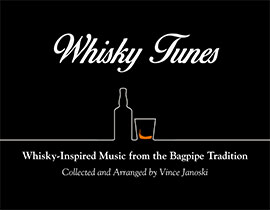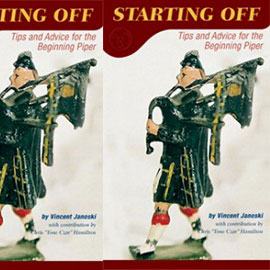Bagpipes: You’re Doing It Wrong
 Most people who are not exposed to matters of Highland bagpiping have an image of bagpipers that includes a dandily dressed man in a skirt, making sounds akin to a tortured goat. Yes, there are a few who claim that the bagpipes will bring a tear to their eye, but it is likely a tear for the cat that is being strangled…oh, wait, that’s the piper making those sounds.…You get the idea.
Most people who are not exposed to matters of Highland bagpiping have an image of bagpipers that includes a dandily dressed man in a skirt, making sounds akin to a tortured goat. Yes, there are a few who claim that the bagpipes will bring a tear to their eye, but it is likely a tear for the cat that is being strangled…oh, wait, that’s the piper making those sounds.…You get the idea.
Thankfully, those of us who actually, actively play Highland bagpipes and delve into the music and the instrument know what is good and what is bad. Or do we?
You would never know that actual pipers perceive themselves and their comrades any differently than the uneducated public when giving their thoughts about what they hear. All you have to do is read any “review” of piping performance from random experts or listen to folks in a beer tent after a competition. You would think that the average educated listener has no higher an opinion of a performance than does the person who thinks bagpipe music is torture on the ears.
It is the nature of piping competition, I suppose, to form critical thoughts when listening to other pipers. Let’s face it, modern bagpipe competition in North America is a reductive process that is set up to punish flaws rather than reward excellence. We, as active modern pipers, have been conditioned in this from the very beginning. We’re trained to find fault in everything we hear—from ourselves and others.
Why is this?
When you read on a competition scoresheet: “Doublings not on the beat,” or “Poor tourluaths in the third part,” you presume that those things were less than perfect, but is that all the judge heard in your performance? In other words, most judges will be pointing out flaws to reduce your performance to a series of imperfections. The one with least number of them wins (probably). The assumption is that those imperfections must be taken away for you to improve. But anyone who has taken a serious approach to their music making will know that improvement is not about eliminating imperfections. In fact, it’s quite the opposite. Musical improvement is a building process. One does not eliminate or take away anything. You add something better to aspects of your playing that may lack sufficient development. It’s shocking to me that piping judges, those who allegedly have a vast amount of experience and expertise, and who have taken a serious approach to their music to reach such a stature, take this reductive approach when talking about performances—on and off the field. The presumption is always “You’re doing it wrong, now let me describe how wrong.” Faced with this for a length of time, is it any wonder we don’t know how to properly appreciate a bagpipe performance?
I suppose an argument can be made for taking this approach when critically assessing a piping performance to pick a winner, but is it really necessary to take this same approach as a spectator appreciating recitals and/or a renowned solo piping contest? How many times have we read “reviews” of the latest contest where a random expert gives their assessment of the performances as if they are judging it? I can pull recent examples where one will read some variation of
“[insert renowned piper’s name here] might well have won this year except for a small slip in the crunluath,” or “[So-and-so] was third but at times the doubling was a bit clipped and his chanter was a bit strident.”
Does any of that give you an appreciation of the music that was played?
If I did not attend said contest, I would have no idea of the musical flavor of those performances. I, for one, would like a true recap of what was heard, so I may appreciate the quality of what was experienced. When I read the typical reductive review of performances of this kind I don’t get any sense of such things as how individual style influences the quality of a performance, or what kind of unique presentation made any of them special. Something that would give me insight into the music that was presented. When reading such a review could you honestly say it was worth being there?
Why can’t Highland bagpipe critique be an additive experience?
An additive approach, simply put, reorients the critique to that which could be added to the performance if it were to be made better. This is an inherently more subjective approach as suggestions as to what can be added will rely on the assessor’s personal knowledge base. It is also more demanding of the listener. He or she who assesses a piping performance must work that much harder if their goal is really to be constructive, or find aspects to truly appreciate. And that’s the point, isn’t it? To listen for things that are enjoyable and perhaps find inspiration or surprise. Gone is the lazy approach of merely pointing out that a piper’s technique is poor or that their phrasing is inconsistent. (Anyone can do that by the way, and you don’t need to be a certified judge.) Instead, what we have is an assessment of what was done well. The presumption shifts from the “wrong” stuff that made a performance less than special, to the “right” stuff that was there, more of which can be added to make it better. Is that really so hard?
So instead of “…his chanter, while resonant, was a bit strident…,” you have “…a mellower chanter tone would have softened the presentation and enhanced the sadness in the tune he was expressing so well.”
Which performance do you wish you were there to hear?
-
John Sturgeon
-
Patrick McLaurin
-
Vince
-
-
Bro Falldown
 Pipehacker
Pipehacker








